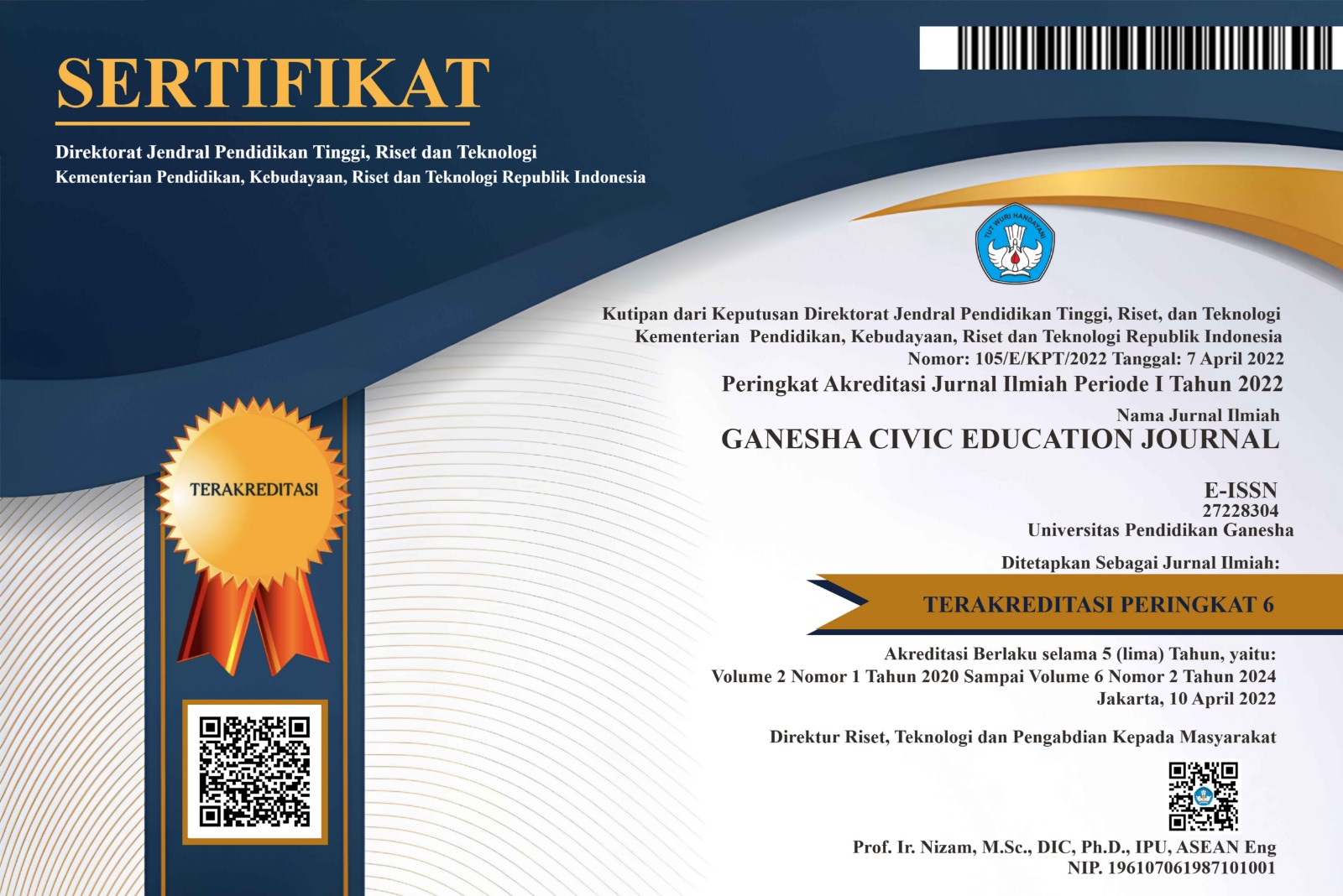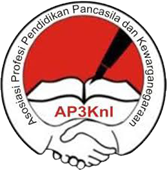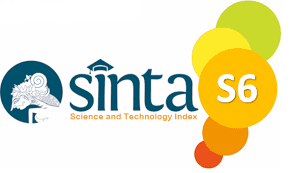Journal History
Ganesha Civic Education Journal has been published electronically as an Open Journal System (OJS) since 2018 under the management of the Law Studies Program, Department of Law and Citizenship, Faculty of Law and Social Sciences, Ganesha University of Education, Singaraja .
The management of the Ganesha Civic Education Journal is managed in accordance with the publication ethic journal, namely the ethics of journal management as a whole concerning: Open Access Policy, Frequency Publications, Board of Ethic Policy Editor, Ethic Policy Reviewer, Ethic Authors Policy. With reference to the publication ethics that have been determined, this journal is published on an OJS basis, the frequency of publication is two (2) times a year, namely the period of April and October, all articles are published through a review process from the Board of Editors, review process from a team of internal good reviewers as well as external. Articles published in accordance with the focus & scope of the journal written by the author based on the Author Guidelines and Journal Templates.
The publication of articles in this journal goes through the Peer-Review Process which begins with a review and review of the journal template by the Board of Editors or the Editorial Board, both internally and externally, has a track record as a journal manager (editor) whose task is to examine and ensure carefully that the articles being reviewed meets the Author Guidelines and Journal Templates. In the review process by the Editorial Team, a review was also carried out related to checking similarity using Turnitin. Articles that have met the requirements of the review process from the editor team, then proceed with the review process by reviewers, both internal and external reviewers.
The peer review process carried out by internal reviewers and external reviewers is adjusted to the reviewer's scientific competence with the articles being reviewed for publication. The reviewer is tasked with assessing the substance of the article, assisting the author through comments and input both relating to the state of arts and other relevant substance components. The review process was carried out using a single blind review and gradually using a double blind review. An ethical review process is carried out for the substance of the article, criticism and input are carried out objectively. Reviewers present clear views and input supported by clear arguments. Personal criticism of the author is an unethical action and it is inappropriate for reviewers to do so during the review process in this journal.
Reviewer is tasked with in detail assessing and identifying the relevance of legal documents, concepts, theories and the results of previous relevant studies used by the author to review and analyze. The reviewer is also tasked with identifying relevant sources of reading or study results that the authors have not followed up on.
The entire review process is conducted electronically. Journal editors are tasked with deciding which articles are worthy of publication, taking into account the results of the preliminary review of the editors' team, the validity of the articles from the results of reviewers, the benefits and contributions of the substance of the articles in the context of developing legal science for researchers, academics, and practitioners, especially those related to the development of legal substance either locally, nationally, and internationally.





1.png)









